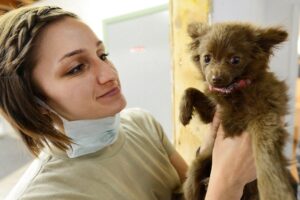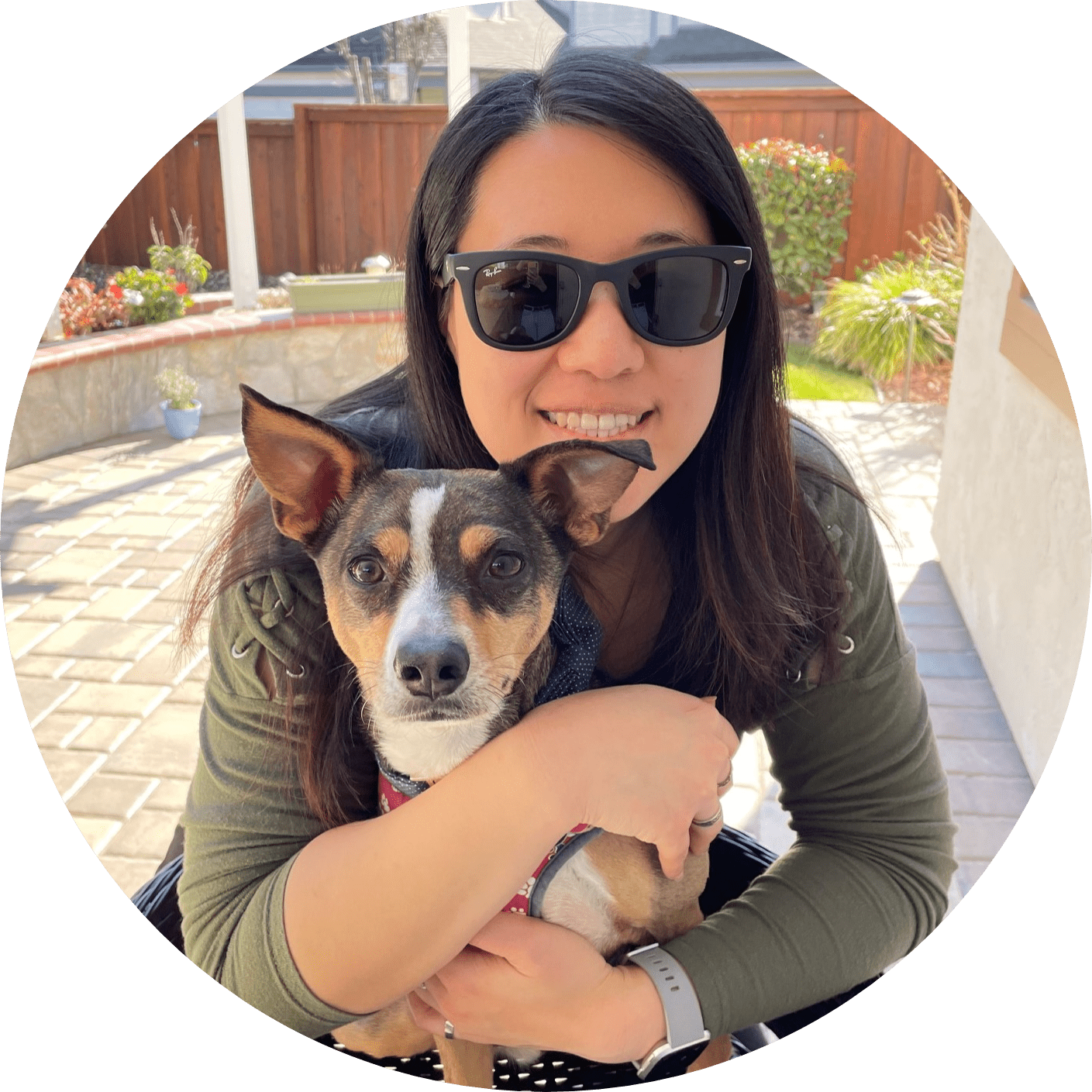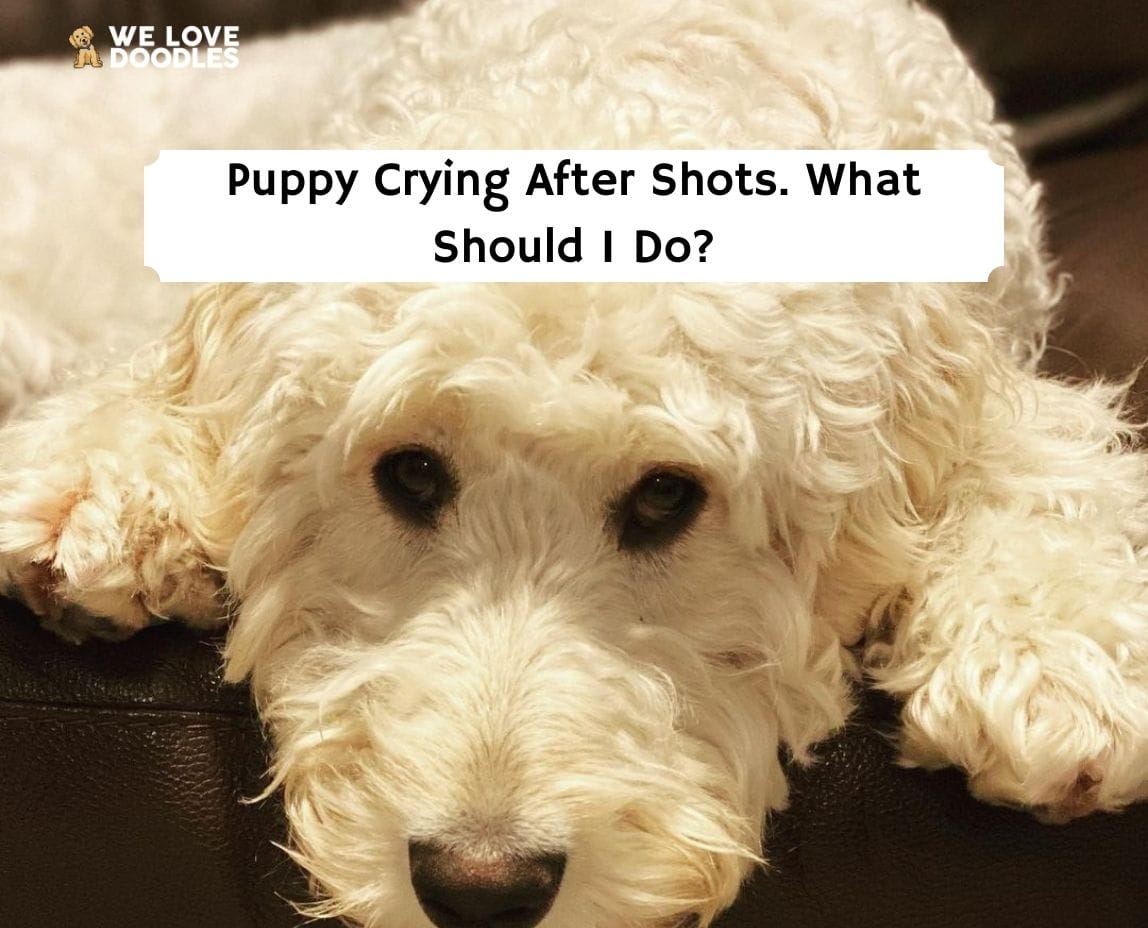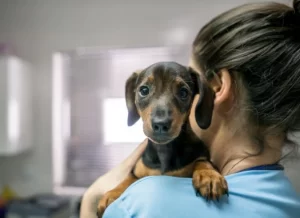If you have recently just brought home a new puppy, congratulations! Your life will now revolve around making sure this cute little baby is safe, happy, and healthy. Being a puppy parent is similar to being a human parent in many ways, you are caring for a creature who cannot care for themselves, watching them grow, and training them to be well-behaved canine citizens. Along the way, you will encounter highs and lows of puppy ownership. For example, a high might be cuddling next to them when they sleep, or teaching them to sit. A low, might be your puppy getting sick or when they chew on your furniture. Nevertheless, this is a wonderful experience you are about to embark on!
Like all new puppy parents, you may have a lot of questions about what behavior is a normal occurrence and what to be concerned about. Specifically, if you have just taken your puppy for their routine shots, you may be worried about the side effects and what to watch out for. In this article, we will cover all of the reactions you should be worried about following your puppy receiving their shots. If you are very worried about your puppy, you should immediately call your veterinarian.
Other articles you would like: Overtired Puppy Symptoms and Worst Dog Food Brands to Avoid.
Necessary Puppy Shots or Vaccinations

Here are a few of the diseases that vaccinations will help your pet to avoid:
- Bordetella Bronchiseptica: This highly infectious bacterium causes fits of coughing, whooping, vomiting, and, in rare cases, seizures and death. It is the primary cause of kennel cough.
- Canine Distemper: Caused by a virus that attacks the respiratory, gastrointestinal (GI), and nervous systems of dogs, most commonly spread through shared food or water bowls.
- Parvovirus: Also known as “Parvo,” this virus attacks the gastrointestinal system and creates a loss of appetite, vomiting, fever, and often severe, bloody diarrhea – it is most commonly contracted by puppies who are less than 4 months in age, and is very hard for their immune systems to fight.
- Rabies: This one you may have heard of, mostly in wild animals like raccoons, squirrels, etc. This is a viral disease that is often passed by the bite of another rabid animal. This is a deadly and fast-acting disease that needs to be addressed within hours of infection, which is why vaccination is so important.
As we mentioned previously, your dog’s first year of life will be the time that they receive the most shots. At your initial vet appointment with your puppy, your veterinarian will probably go over a timeline of when these shots are recommended, for example – Distemper and Parvo at 6-8 weeks, DHPP at 10-12 weeks, etc. The core vaccines are usually at 6, 12, and 16 weeks, and then the time between vaccinations spread out as your dog grows older, with once or twice a year being the average.
Most Common Vaccine Reactions

The first symptoms that may occur for your precious pup are cold-like symptoms that include sneezing, runny nose, a fever and/or coughing. Another common symptom that most dogs experience is lethargy or extreme tiredness. If following their vaccinations your pup just wants to sleep all day when they are normally quite active with puppy energy, fear not, it’s simply their body’s immune system that works and responds to the vaccination. And finally, your dog may experience a lack of appetite, this is normal, but just be sure they are staying hydrated and drinking plenty of water. Most dogs will recover from these symptoms within a couple of days, but if recovery is taking longer or your pup’s reaction is more severe, get in touch with your veterinarian.
If you notice that your puppy is crying or whining after receiving their shot, it may be due to soreness or discomfort in the area where they were given the vaccination. Similar to how your arm is sore the next day after getting your flu or COVID shot. Again, this soreness will fade in a day or two, but if you feel like it is getting worse or not resolving, it may be a good idea to reach out to your vet to see if they recommend prescribing a pain killer for your dog on their next round of vaccinations to ease their pain.
More Serious Vaccine Reactions
Serious side effects from pet vaccinations are very rare, but can occur, and these symptoms can be quite scary for a brand new puppy owner. Following your vaccination appointment, be on the lookout for any of the following symptoms, as they may be signs of an allergic reaction. Call your veterinarian immediately if you observe any of the below:
- Severe vomiting or diarrhea
- Constant itching/skin feels bumpy
- Noticeable swelling around the nose, face, or eyes
- Difficulty breathing which might look like severe coughing
- Collapsing, fainting, or inability to get up
If this is not your puppy’s first vaccination visit and you know they have had these serious reactions before, be sure to tell your vet before he or she administers new vaccines. The best plan if you are at all concerned that your pet may have an adverse reaction, stay in the veterinary office for 30-60 minutes after the shot, this way the vet can address the adverse reactions immediately.
Conclusion to “Puppy Crying After Shots. What Should I Do?”
Once again, congratulations on the newest addition to your family! Getting a puppy is a rewarding and exciting experience. Your research already proves you are going to be a great pet parent. As we mentioned earlier, like all new puppy parents, you may have a lot of questions about what behavior is a normal occurrence and what to be concerned about. When it comes to vaccine reactions, you are fully equipped to ensure that your puppy has a safe experience.
As we learned today, many of these reactions – such as soreness, lethargy and coughing/sneezing, following your pup’s vaccination appointment are harmless and fade away within one to two days. But, if you notice the continued or worsened symptoms, or witness the symptoms of an allergic reaction it is important to contact your veterinarian immediately so they can assist in the best way possible. We hope you enjoyed this article and learned something new!
Other articles you would like:

Dr. Sabrina Kong graduated from the Royal Veterinary College in England in 2016 and has been working at a small animal clinic in Northern California since then. She grew up in the Bay Area and got her bachelor’s degree from Cal Poly San Luis Obispo. She also became a Certified Canine Rehabilitation Practitioner through a program at the University of Tennessee.
When she isn’t in the clinic taking care of her four-legged patients, she enjoys traveling and trying new foods with her friends and her three-legged dog, Apollo. She adopted Apollo from her clinic when he was a puppy with numerous health issues. Dr. Kong truly cares about taking care of animals.


